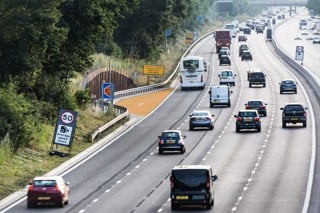Fleets are being urged by Venson Automotive Solutions to create a cost-effective fleet road safety strategy that adds value in a post-Covid world.
The move follows the recent publication of a “Road Safety Pays Dividends” whitepaper from the Fleet Industry Advisory Group (FIAG), which Venson calls businesses to get behind.
It is estimated that up to one third of all road traffic accidents involve someone who was at work at the time and may account for as many as 20 deaths and 250 serious injuries every week in the UK, says Venson.
For organisations of any size, managing risk to ensure that employees are as safe as possible when out on the road on work related business needs to be a top priority.
Fleet managers not only have a legal duty, but also a moral duty to ensure employees who drive for work are protected as far as is reasonably practicable.
As the country slowly moves out of lockdown and more business traffic takes to the roads, fleets may need to not only reassess their risk levels but also re-engage with staff on the part they play in keeping work related road accidents to a minimum, Venson explains.
According to the FIAG whitepaper, estimates suggest 20% of drivers are responsible for 80% of fleet maintenance costs.
Providing appropriate driver training so that they reach specified levels of skill and expertise, and the monitoring of driving behaviour will increase competency levels and potentially lead to a reduction in accidents and the associated cost of repairs, says Venson.
With fewer vehicles off the road for repair, fewer days lost through injury and a reduction in paperwork from having fewer investigations to deal with, companies can get on with day-to-day business with fewer interruptions.
Simon Staton, client management director at Venson, explained: “The pandemic has accelerated the already rapid changes taking place within business transport.
“Greener more sustainable fleets with electric and hybrid vehicles, are an important development in helping to reduce pollution levels. However, they could bring with them higher repair costs if staff who drive the vehicles are not given the appropriate training and support.
“There are benefits - not only to their own safety but also to the success of the business - of reducing the number and cost of accidents at a time when economic uncertainty is putting pressure on the balance sheets of many organisations.”
























Login to comment
Comments
No comments have been made yet.